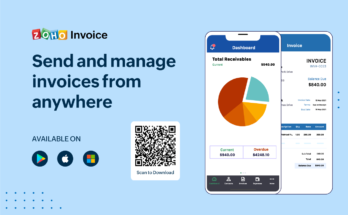Introduction:
The Power of AI in the Workplace
Artificial Intelligence has been making its mark on various industries and it’s no secret that it’s going to have a huge impact on the way we work. AI has the ability to automate mundane tasks, allowing us to focus on more creative and strategic work. It can also help us make better decisions by providing us with valuable insights and analytics. In short, Artificial Intelligence in the Workplace has the potential to make our jobs easier, more fulfilling, and more efficient.
The Benefits of AI in the Workplace
The Challenges of enforcing AI in the Workplace Preparing for the Future of Work with AI The Benefits of AI in the Workplace The benefits of AI in the plant are numerous, but then are a many crucial ways it’s formerly making an impact Increased effectiveness AI can automate repetitious tasks, freeing up time and coffers for more important work. bettered Decision- Making By furnishing real- time perceptivity and analytics, AI can help us make better opinions and stay ahead of the competition .
Enhanced Customer Experience:
AI-powered chatbots and virtual assistants can provide customers with 24/7 support, improving their experience with your company.
The Challenges of Implementing AI in the Workplace
While AI has the potential to revolutionize the workplace, there are also some challenges that come with its implementation.
Privacy Concerns:
The use of AI raises questions about data privacy and security, which companies must address to ensure customer trust.
Job Displacement:
There is a fear that AI will replace human jobs, leading to job losses and unemployment.
Lack of Understanding:
Many workers and companies are still learning about the capabilities and limitations of AI, leading to resistance to its implementation.
Preparing for the Future of Work with AI
The future of work with AI is inevitable, and it’s essential that we start preparing for it now. Here are a few ways companies and workers can get ahead of the curve:
Embrace Lifelong Learning:
To remain relevant in the age of AI, it’s crucial that we continuously learn new skills and technologies.
Foster a Culture of Innovation:
Companies must create a culture that values and encourages innovation, so they can take full advantage of the benefits of AI.
Address Concerns Proactively:
- Companies must address the privacy and security concerns surrounding AI, so that employees and customers feel confident in its use.
Conclusion Embracing the Future of Work with AI Artificial Intelligence has the power to transfigure the way we work, making our jobs easier, more fulfilling, and more effective. While there are challenges to its perpetration, we can prepare for the future of work with AI by embracing lifelong literacy, fostering a culture of invention, and addressing enterprises proactively. Do not stay for AI to disrupt your assiduity- launch taking way to prepare yourself and your company now. - As AI continues to evolve and access colorful diligence, it’s important that we stay informed and educated on its capabilities and limitations. This won’t only help us more understand how AI can enhance our work, but it’ll also help us make informed opinions about its perpetration. It’s also pivotal that companies prioritize the well- being of their workers in the age of AI. This means creating openings for upskilling and reskilling, and addressing any enterprises about job relegation head- on.
In conclusion, AI has the implicit to greatly ameliorate the way we work and it’s over to us to harness its power for a better hereafter.
Are you ready to embrace the future of work with AI?
Take the first step in preparing for the future of work with AI by downloading our whitepaper on “Artificial Intelligence in the Workplace”. In this whitepaper, you’ll learn about the benefits and challenges of AI, as well as strategies for success in the age of AI. Get your copy now!



